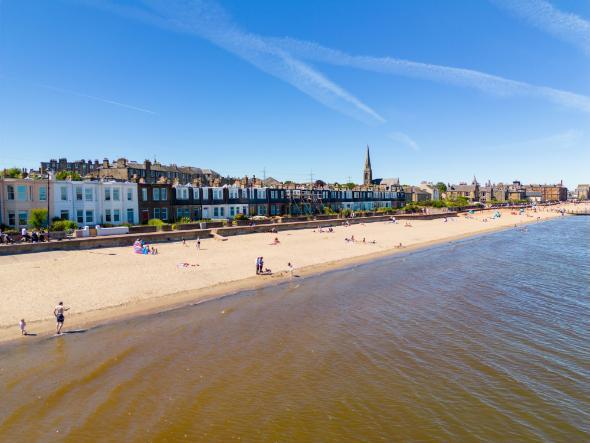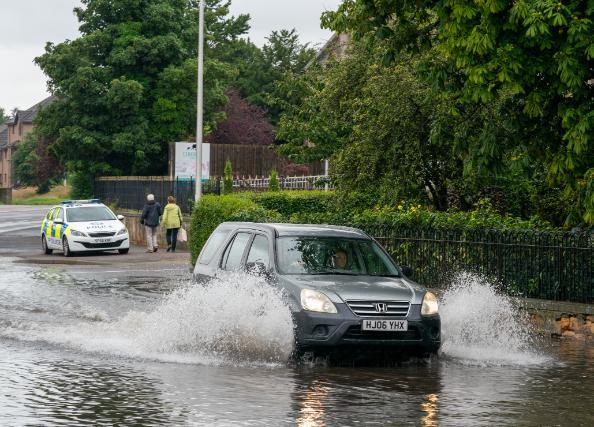Fostering Resilience in Scotland: Navigating the Challenges and Embracing Collaboration
Published: 23 August 2023
We are delighted to welcome our Incoming Principal Investigator Professor Fabrice Renaud. In addition to his work with the NCR Fabrice is the Head of the School of Social & Environmental Sustainability at the University of Glasgow and a Professor in Environmental Risk/Community Resilience. In his introductory article, Professor Renaud outlines how the NCR will continue to support building resilient communities in Scotland.
The world has been experiencing many shocks in the past few years. To take a few, recent examples, Scotland has, like everywhere else on the planet and in relatively rapid succession, been affected by the COVID-19 pandemic, the energy crisis triggered by the war against Ukraine, and rapid inflation, all of which have had huge detrimental effects on people and communities. Sadly, natural and man-made hazards are currently affecting many countries and regions with terrible impacts on people, communities and the environment. Scotland is not immune to these and is going to be increasingly affected by the consequences of climate change with extreme rainfall events predicted to increase fourfold by 2080 [1] and Scotland recording its highest ever temperature in the Summer of 2022[2]. Building resilience of people, of communities, of economic sectors and more generally of systems, will remain a vital priority in years to come. The Scottish Government defines community resilience as “communities and individuals harnessing resources and expertise to help themselves prepare for, respond to and recover from emergencies, in a way that complements the work of the emergency responders”. More generally, resilience is defined by the Intergovernmental Panel on Climate Change as “The capacity of interconnected social, economic and ecological systems to cope with a hazardous event, trend or disturbance, responding or reorganising in ways that maintain their essential function, identity and structure. Resilience is a positive attribute when it maintains capacity for adaptation, learning and/or transformation”. Among several attributes, capacity to learn is an important component of resilience, and the NCR aims to contribute to our knowledge through multiple pathways.

First, by bringing different communities of knowledge together to help shape a resilient Scotland. It is clear that resilience building should be on everyone’s agenda, and perhaps more importantly, that these agendas should be shared, mutually discussed, and refined so that a clear resilience strategy emerges by being informed by all stakeholders. We will continue to strive to connect the research, practitioner and policy communities with community groups, volunteers and organisations that support the public through significant events, as it is only by working together that we will find optimal answers to the complex nature of natural hazards and the risks they pose to society. This autumn/winter we are set to host a series of cross-sector events. These events will convene attendees from a diverse group of disciplines to deliberate on various topics. These subjects will range from water security and management and the utilisation of communications in the context of natural hazards to the measurement and quantification of resilience within Scottish communities. The NCR will continue to prioritize these types of engagements drawing on its vast network of experts.
Second by continuing to engage with relevant UK and Scottish resilience fora. We have been involved for a few years with the UK Alliance for Disaster Research and taking a more international angle, with the Global Alliance for Disaster Research Institutes. We are contributing to the National Flood Resilience Strategy alongside key partners from the resilience sector, taking a collaborative cross sector approach to build a robust and inclusive strategy that will ensure our communities are represented and engaged in future national plans.

Lastly, by continuing to support academic research and practitioner-led projects focussing on resilience in Scotland. Since 2016 the NCR has directly supported 26 research projects and 14 practitioner-led projects and activities. You can see the reports on all these projects on NCR’s website. This year, Dr Jiren Xu from the University of Glasgow School of Social and Environmental Sustainability is carrying out research on peatlands and the role they can play, as a nature-based solution, in mitigating cascading hazards in Scotland. In our next newsletter, we will be introducing our four funded community and practice-based projects for the year ahead.
The NCR is all about partnerships. So if you are interested in connecting with us please get in touch at nationalcentreforresilience@glasgow.ac.uk and join our ever growing network of experts through our associate membership.
[1] https://www.metoffice.gov.uk/about-us/press-office/news/weather-and-climate/2023/new-research-shows-increasing-frequency-of-extreme-rainfall-events
[2] https://www.metoffice.gov.uk/binaries/content/assets/metofficegovuk/pdf/weather/learn-about/uk-past-events/interesting/2022/2022_03_july_heatwave.pdf)
[3] https://eur-lex.europa.eu/EN/legal-content/glossary/adaptation-to-climate-change.html#:~:text=Resilience.,for%20adaptation%2C%20learning%20and%20transformation.
First published: 23 August 2023
<< News

